Changes for page Mission Director Guide
Last modified by Klaus Meyer on 2025/03/31 16:39
From version 32953.1
edited by Daniel Turner
on 2023/08/22 18:58
on 2023/08/22 18:58
Change comment:
There is no comment for this version
To version 32954.1
edited by Daniel Turner
on 2023/08/22 19:00
on 2023/08/22 19:00
Change comment:
There is no comment for this version
Summary
-
Page properties (1 modified, 0 added, 0 removed)
Details
- Page properties
-
- Content
-
... ... @@ -1188,21 +1188,33 @@ 1188 1188 1189 1189 To remove variables or list/table entries, use <remove_value>: 1190 1190 1191 -{{code language="xml"}}<remove_value name="$foo" /><remove_value name="$list.{1}" /><remove_value name="$table.$foo" />{{/code}}\\ 1191 +{{code language="xml"}} 1192 + <remove_value name="$foo" /> 1193 + <remove_value name="$list.{1}" /> 1194 + <remove_value name="$table.$foo" /> 1195 +{{/code}} 1192 1192 1193 1193 Removing an entry from a list shifts all following elements down by one. If you want to clear an entry without removing it from the list, just use <set_value> instead. 1194 1194 1195 - \\\\\\(% id="accessing-remote-variables" %)1199 +(% id="accessing-remote-variables" %) 1196 1196 1197 1197 == Accessing remote variables == 1198 1198 1199 1199 You can also read and write variables in other cues by using the variable name as property key: 1200 1200 1201 -{{code language="xml"}}<set_value name="OtherCue.$foo" min="0.0" max="1.0" /><set_value name="md.OtherScript.YetAnotherCue.$bar" exact="OtherCue.$foo" />{{/code}} 1205 +{{code language="xml"}} 1206 + <set_value name="OtherCue.$foo" min="0.0" max="1.0" /> 1207 + <set_value name="md.OtherScript.YetAnotherCue.$bar" exact="OtherCue.$foo" /> 1208 +{{/code}} 1202 1202 1203 1203 Instead of referencing a cue by name, you could also reference it via a keyword or another variable: 1204 1204 1205 -{{code language="xml"}}<set_value name="static.$counter" operation="add" /><set_value name="parent.$foo" exact="42" /><set_value name="this.$bar" exact="parent" /><set_value name="$baz" exact="this.$bar.$foo" />{{/code}} 1212 +{{code language="xml"}} 1213 + <set_value name="static.$counter" operation="add" /> 1214 + <set_value name="parent.$foo" exact="42" /> 1215 + <set_value name="this.$bar" exact="parent" /> 1216 + <set_value name="$baz" exact="this.$bar.$foo" /> 1217 +{{/code}} 1206 1206 1207 1207 \\\\\\(% id="namespaces" %) 1208 1208 ... ... @@ -1212,7 +1212,16 @@ 1212 1212 1213 1213 Consider this case: 1214 1214 1215 -{{code language="xml"}}<cue name="Root"> <actions> <set_value name="$foo" /> </actions> <cues> <cue name="SubCue"> [...] </cue> </cues></cue>{{/code}} 1227 +{{code language="xml"}} 1228 + <cue name="Root"> 1229 + <actions> 1230 + <set_value name="$foo" /> 1231 + </actions> 1232 + <cues> 1233 + <cue name="SubCue"> [...] </cue> 1234 + </cues> 1235 + </cue> 1236 +{{/code}} 1216 1216 1217 1217 When the root cue creates $foo, the variable is stored in the Root cue directly. But SubCue and its descendants will also need access to $foo. Of course they could write "parent.$foo" or "Root.$foo", but since it's very common to have a single location for most variables in the whole cue tree, the easy solution is to write just "$foo" - because variable names are looked up in the **namespace cue**, which is the root by default. Also newly created variables end up in the namespace, and not in "this" cue. 1218 1218 ... ... @@ -1236,5 +1236,5 @@ 1236 1236 <param name="Param1" value="$foo" /> <!-- $foo from parent namespace --> 1237 1237 <param name="Param2" value="namespace.$foo" /> <!-- LibRef.$foo (error) --> 1238 1238 </cue> 1239 - 1260 +{{/code }} 1240 1240 {{/warning}}
